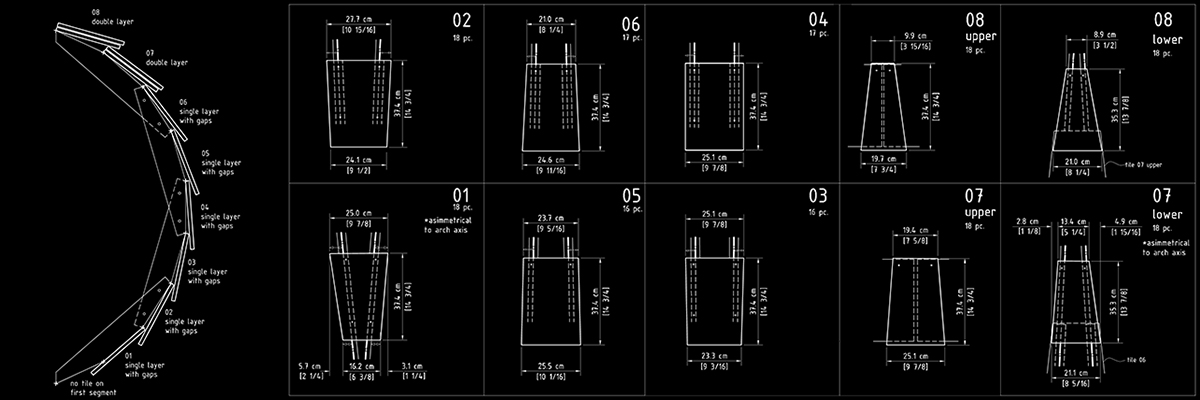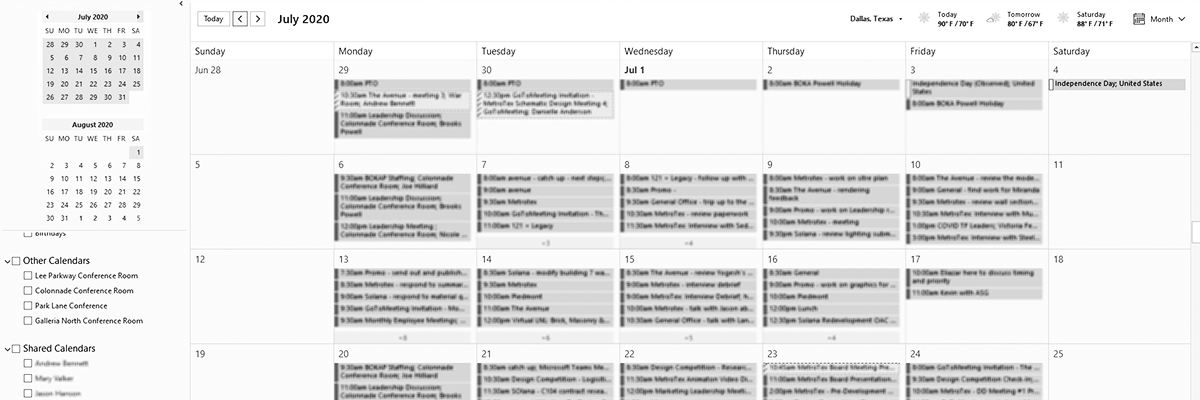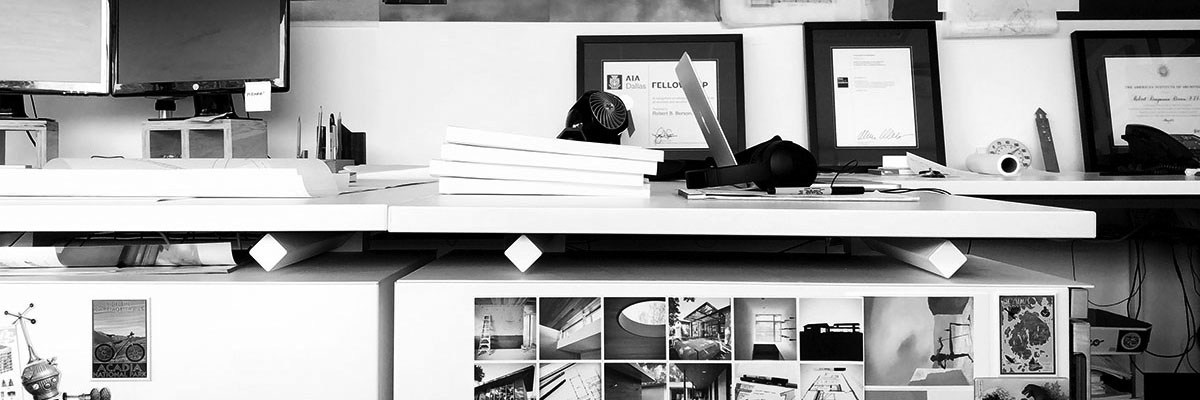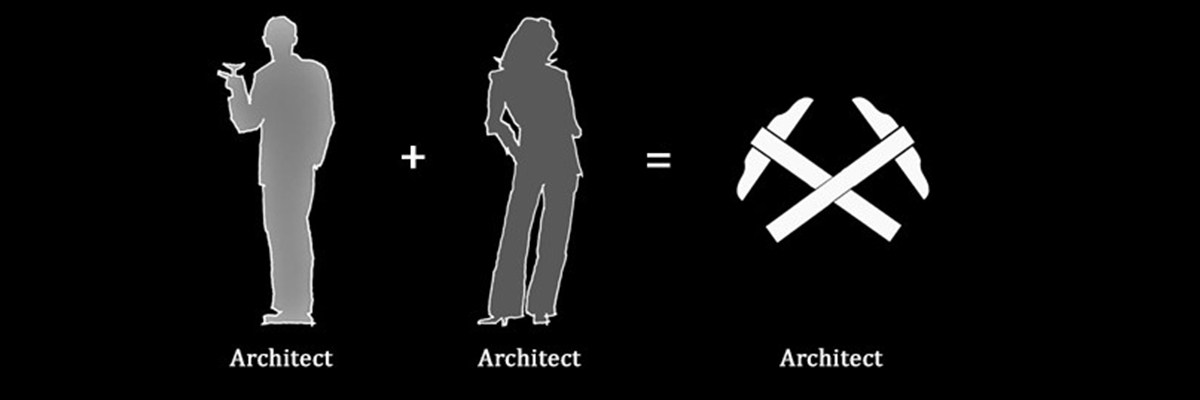Should architects date one another? How do you get your first client? What is the greatest challenge you’ve ever faced? All this and more burning questions for Bob Borson, FAIA, and Andrew Hawkins, AIA, on Episode 67 of Life of an Architect!
Today we are taking it to the street–more accurately to Instagram–where I asked people to submit questions to Andrew and I that they NEEDED to know. These are burning questions–and it’s a burning hot list of need to know information.
I should point out that people are incredible, and while we only have time to work through a handful of questions, once I put the call out, “the people” responded to our request with over 60 questions. I will admit that not all the questions are winners. I was asked what color underwear I’m wearing (today’s pair is dark grey in case you were the person who asked that question). But there were some really interesting questions, some were impossibly difficult, and some I think would just be fun to answer, and others stay on the list for the next “Ask the Show” episode that will come out this Fall.

What are good strategies for securing your first client as a new, unknown sole practitioner? jump to 3:23
Question submitted by @Theobsessedarchitect – Jonathan McConnel
Bob: I think there are two things that are good for getting work, especially so if you are just starting out, and both of them involve volunteering. The first is to volunteer at an architect-intensive environment, like the AIA (assuming that is available to you). This is a good strategy because it gives you an opportunity to show other architects how amazing you are – things like following through, attention to detail, organizational skills, ability to do what you need to do. It also gives you a chance to meet a bunch of other architects and so when you combine these two ingredients, you can let folks know that you are looking for work and if they get something that comes in that either they can’t take on, or it’s a bad fit, or they simply don’t want to do it, they can refer this project on to you. I refer projects to other architects constantly, so I know this is a decent strategy.
The second thing you can do is basically the same thing as the first, except it ISN’T in an architect-rich environment. It’s important to build your network in a way that involves outside interests and individuals because eventually, that’s where the majority of your work will come from these relationships.
Andrew: While I think it is a good idea to volunteer, I also think that if you can provide some Pro bono work to a non-profit or work as a discounted rate. Now this is not a long term business model, but I always made room in my annual workload for pro bono projects. This is a small way to also get your name out in your community. This can not only add some work to your portfolio but also allow someone to see your abilities. I can say, in my experience, that acquiring work is one of the largest challenges of owning your own practice.

Is there room for bespoke craftsmanship in today’s buildings or is it only for those with large budgets? jump to 9:46
Question submitted by @Bendham_design – Brian Benham
Bob: I sure hope there is, but I wonder if this question isn’t about something else since it’s almost framed as if bespoke craftsmanship is inherently expensive and as a result, frequently a budget casualty. Brian is a woodworker and builds custom pieces so I would imagine his question is more pointedly referring to what he does – which is to design and build one-off pieces. I think there is room for bespoke craftsmanship because there are clearly people that want them. There is an opportunity for architects and designers to make themselves aware of the artisans that are out there and available, and then to let their ego get out of the way and retain these craftspeople to do what they do best.
Andrew: I say yes to this also. I think every project has room. I think it can happen with the proper attention to the budget. If known in the beginning, the correct allowances can easily be made for any type of bespoke craftsmanship. I think that every project can accommodate a level of bespoke work. I do think that the budget may be impacted if this is not planned for or if the desired “bespoke-ness” is oversized for the project. Everything requires the proper level of scale. That is of course a lesson to be applied to all projects, especially with respect to bespoke craftsmanship. I think that it is possible to have an entire project be created that way as long as it is the project goal. Even with the smallest of budgets. It is also a matter of balance of expectations.

Are there times when you feel fed up with architecture? jump to 13:32
Question submitted by @to.scale – Sana Tabassum
Andrew: Uhm…of course. I think that every person who works any job has those moments. I can say that at least once per year I have an overwhelming desire to chuck it all. At times it can be from a long-term buildup of frustration or it could be a single incident that pushes me to that point. But usually, they are fairly short-lived and I realize even in my frustration I would not want to be doing anything else with my life. So rest assured it happens to everyone. In every job. But certainly in architecture. There are so many moving parts to the work that we do, I believe it would be impossible not to feel fed up at some point.
Bob: Of course, and anyone who says otherwise I think is kidding themselves. At the very least, this is not an architecture thing, anybody who has a job is can get fed up with it. I’ve gone through this several times and when at its worst, me changing jobs almost always followed after my lowest moments. Make no mistake, I love what I do but it isn’t always milk and honey, even though from my social media accounts you would think I do nothing but sit back while people feed me architectural grapes. Amir, one of our frequent commenters on the site said just the other day (although in a slightly different context):
"Don’t compare your behind-the-scenes to someone else’s highlight reel."

What’s been the greatest challenge you’ve experienced across the blog/podcast? jump to 19:55
Question submitted by @Caleb.schemmel – Caleb Schemmel (Private account)
Bob: There are a lot of challenges I’ve had to contend with but Caleb is asking for the “greatest” one … Challenges, challenges …This is a hard one for me but I suppose it really comes down to finding the time to create the content, and all that requires, consistently. I think about how my daughter was three years old when I started and she’ll be a senior in high school next year. I don’t think I’ve had more than a handful of weekends during that entire time when I didn’t do some work associated with this website.
Andrew: I would say it is all about time. Doing any side project takes up some of your time – time you would rather be doing something else. So making the time for this as a step above a hobby is the biggest challenge. I know that I have not been at this as long as Bob, (per se, it’s complicated) but having the discipline to maintain the required consistency is honestly tough. I would also say that creating content is also a difficult part of it all. Creaming up something that people want to listen to or to read is challenging.
In all the years of practice, what is the most difficult/challenging part of the profession? jump to 24:43
Question submitted by @Alexkathilu – Alex Kathilu (Private account)
Andrew: To be completely honest, the most difficult part of the profession for me is finding work. As an introvert, being a salesman is tough. I am not one to typically boast of my qualities to others. (at least not in a serious manner) Most of the time selling yourself to others involves some bit of tooting your own horn. On top of that, my selected market made it tough for me to get work also. As a small firm in the public work sector, it was difficult at times to compete. The fact that the majority of public work is decided on paper through Statements of Qualifications is a double-edged sword and the main reason for the difficulty. As it can help eliminate some of the favoritism, nepotism and etc., it also removes any ability to sell yourself or build relationships prior to the projects. I could go on and on about this process and how strange it has become to compete for small projects against some of the powerhouse firms in the nation, but I will stop with that. I love the creation of architecture and all the work involved in that process. But seeking out and acquiring work is, in my opinion, is the most challenging part of the profession.
Bob: It has to be finding some sort of balance between maintaining my attention and my enthusiasm as I vacillate between creative work, challenging work, and boring unappealing work. I wrote a post about this years ago (here) in what has turned into a “coming of age” tale.
On average, how many jobs does an architect go after versus projects won? jump to 27:51
Question submitted by @j_spy_arch – Jason Shannon
Bob: I did some research on this particular question and while I found some interesting statistics, none were specific to architects, but let’s start there. This was particular to contractors – so I did keep it in the industry. This was for general contractors’ bidding work versus winning that bid work. The range was … do you want to guess? 16.6% – 25% of the time.
If I bring that a bit closer to my own record – which I don’t keep track of – is probably more in the 75% range for the last 6 or 7 years.
Why? I don’t chase work and so pretty much everyone who hires me reached out to me. Now, they are frequently talking to someone else so it doesn’t necessarily mean I say “Hello” and they hand me a project. Having my website certainly helps because most of the people who find me, find me there and there is enough content there spanning almost 12 years that people can get a pretty good feel for who I am as a person, that I would be fun to work with, that I am a considerate and honest individual and for some people, that’s more than enough for them.
Andrew: So I researched this at one point early on in my tenure as firm owner and the norm seems to be in line with a 20%-30% success rate for public projects at least. It becomes more difficult for me to speak to other markets as I did not spend much time in them. I had a fairly high success rate for any commercial projects I pursued because those were usually projects that came to me and my office. I did not seek them out. The only type of work I ever had to pursue was public-sector work and in that realm, the percentages of about 30% would be deemed average or good. I am certain that higher rates are possible, but I would imagine that a 50% success rate would be the high point. But this success rate is involved with so many factors it is difficult to supply an easy answer here. I would say the best way to get success is to make sure you are pursuing work that you want, are passionate about, or have a strong project history.

What are some things you do to keep your desk organized? How much clutter do you embrace? jump to 32:34
Question submitted by @ec.xv – Eugene
Andrew: No clutter. I am predisposed to organization at my desk. I tend to require a clean space to work. Now I will in no way say that my desk is always immaculate, but I like to keep a tight ship. I tend to tidy up my desk either at the start of each day or every other day. When times are hectic and busy that timeline may slip a little, but at some point, I have to stop and clean. I am a huge fan of binder clips of all sizes. They can keep my papers in line. I do allow piles of papers in my desk area and even those are organized in ways that make sense to me. Most of the time they are organized by project or office task. Nowadays it also involves classes and administrative work.
Bob: When I saw this question come in, and I instantly thought it could be a fun one to answer, although it might be hard to actually articulate.
The size desk that a person has seems to contribute directly to the amount of clutter they can handle – and therefore disguise. With the last three jobs that I’ve had, my desk size has shrunk considerably. My desk moves between states weekly – from picture-perfect to a state where you might not even know that there’s a desk under all the garbage that gets piles up. I don’t like a lot of clutter but it is a natural part of the creative process … but it can get to a point that my brain can’t handle. I routinely clean my desk, like hitting the reset button, knowing that it will fall into a disastrous state in short order. I embrace piles … I’m a piler (I’m going to say that is a real word).

What are your office pet peeves? jump to 37:39
Question submitted by @trezzyy_ – Trey Meyer
Andrew: As an owner, my main pet peeve was headphones in the office. I always wanted employees to hear discussion and chatter about other projects in the office. This is mainly due to my belief that you can learn just as much by listening to other discussions as you can directly. Also, the way my office worked was that projects were not silo-ed. We all shared duties on projects and needed to be aware of the status of all projects at all times. I did not operate my office in a segregated fashion. After that, I think we can refer to the previous question in reference to organization and cleanliness. That would definitely next in line. So keep it clean and pay attention to your environment. I think I can also agree with Bob about taking care of your business.
Bob: Reheating fish or broccoli in the microwave is probably up there. I don’t care for people reheating Indian food either. People everywhere are gasping as they think “I love Indian food!” so let me clarify that this is more observation regarding pungent food – not everyone thinks that the same food smells bad, but I don’t want to smell it across the office an hour after you’ve heated it up. I like tuna fish but I’m not going to stick some in the microwave for everyone else to enjoy for the next several hours.
I also think people should clean up their mess when they’re done making that mess.
Other than that, I don’t have many pet peeves … I’m probably more a source of pet peeves than I am for observing them. I talk a lot and when that happens, I tend to hold court a bit so it shuts everyone down in a way that ownership would likely not appreciate.

What new things/activities did you discover during quarantine that you might not have otherwise? jump to 41:51
Question submitted by @archaalto – Dru Harrison
Bob: I did not use my “work from home” time to it’s fullest as I didn’t take on any new hobbies, or tackle any new unscheduled tasks around the house. First off, I was still working during all this time and if anything, I work a whole lot more since my desk was literally in my bedroom. However, I did learn that I am more than capable of drinking an entire bottle of wine by myself with no additional motivation other than “What should I do next?”
Andrew: I learned that I enjoyed making bread. I made several types of bread, but I became quite adept with making Chocolate Chip Banana Bread. I think that I have actually “perfected” this task. One of the more upsetting portions of this pandemic was when it was tough to buy flour. I tried a few substitutes but was not fond of the results. But I am still enamored with baking bread almost a year later. Other than that activity, I really did not have much “spare” time during the pandemic to discover new things. Maybe this is due to the fact that I already spent plenty of time at home before the pandemic.

Do you think architects should date/marry other architects?jump to 43:51
Question submitted by @wow.dani – Daniela Nunez (Private account)
Bob: I’m not sure it matters to me, pretty sure my opinion in this doesn’t matter but I included it today because I find it so interesting that architects date one another. I literally know dozens of instances. I used to think it was because we work all the time and so our dating pool is limited to the people in the room … but how many doctors date and marry other doctors? Of course, it happens … but not like architects.
Andrew: Originally my reaction here was NO! The reason for this is because I think that we as architects are a fairly opinionate group. I think that would cause more conflicts than benefits. I mainly believe this because we are also typically very passionate about our opinions. While I think that is a somewhat suspect idea, I do know quite a few couples that seem to make it work. So maybe it is not the worst idea because the shared lifestyle, interests, understanding, etc., may make it more amenable than I imagine. But I would say that I would definitely not want to work together. Again, here I know some couple in this situation, but for me, I would not want to constantly have the ability to discuss matters of work with your partner no matter the time or place. I think that being able to turn off work is a valuable part of creating that work-life balance. But in summary, I am not a relationship counselor. If I was, I would say if you find someone who makes you happy you are in great shape!
We are introducing a new version of the hypothetical question here on Life of an Architect. Technically we’ve already been doing some version of this and calling it a hypothetical question but we are going to make it a bit more legitimate.

Would you rather? jump to 49:10
"For today’s Would you Rather question, I’m not sure there is a wrong answer … or is there? (yes, there is absolutely a wrong answer here)."
Would you rather have all traffic lights you approach be green or never have to stand in line again?
I already can hear some of you thinking that sitting at a red light is a form of “standing in line” – and I’m with you on that perspective.
We will be having our next Ask the Show episode later this year – sometime in the Fall – so if you have your own burning hot question you would like us to answer, just be on the lookout as we place the call for those questions on my Instagram story.







